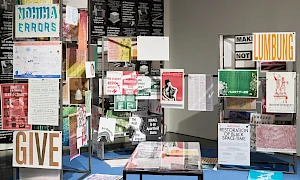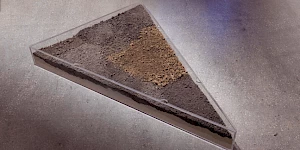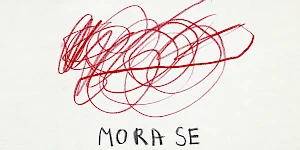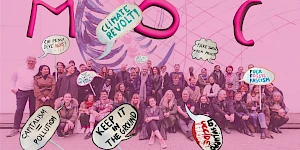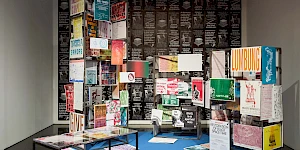Tongue and Throat Memories
On hospitality and conviviality through food
Knowledges and convenings
Cooking Sessions
In the Wolof language spoken in the Senegambia region in West Africa, the word kër could be translated as ‘house’. However, the meaning of kër goes beyond an understanding of the house as a physical structure; it encompasses the people in it and their experiences, roles, energy, values, and modes of care, which are collectively constructed. A better translation of kër in English would be a “welcoming house” with food and love alike—a welcoming home. Tongue and Throat Memories acts as an ongoing quest to respond to the central question: To what extent could Haus der Kulturen der Welt be thought of and transformed into a home for the cultures of our worlds?
Fundamental to this question is to embrace all future guests that walk through HKW’s doors. Knowing that a home can live on, be permanent, and in a process of constant revival and energy renewal from generation to generation, the question of what will become of this home that intends to be built together is crucial. In establishing a welcoming home, food is a central element for convening guests from many origins, age groups, and cultures, for one cannot study any culture without engaging in a quest to understand its food rituals and traditions. Cooking and sharing a meal thus constitute a gesture of solidarity and of healing. This programme takes shape through cooking, tasting, and eating moments, considering them as starting points for meaningful encounters and dialogues.
In her groundbreaking book, Longthroat Memoirs: Soups, Sex and Nigerian Taste Buds, Nigerian writer Yemisi Aribisala reminds us of how fascinating throat memories are, even though often forgotten as essential archives. She reflects on hospitality and conviviality, pointing out the way traditional circular seating and collective eating found in West African traditions and around the world have dealt with difference and exclusion.
Thinking about the long history of forced migration and displacement, this is an opportunity to unpack various food cultures of those who historically had to establish new homes on lands in Africa, the Americas, Asia, Europe, and the Middle East as an act of survival and resistance. These new homes were constructed around the need for subsistence resolved only by active practices such as seeding, farming, and other modes of food cultivation. Escaping enslaved people, for instance, used hair braiding techniques to collectively draw maps of the slave masters’ fields. As an act of survival, they hid seeds under their braids, allowing them to establish themselves in new lands and use their earthly knowledge to grow food and utilize resources from scratch.
In order to learn from these stories and numerous others that have been neglected, throat memories are activated through the sharing of a meal in an effort to collectively learn about one’s traditions and knowledge. Throughout the next five years, invited chefs from different cultures take up residence in the kitchen of Weltwirtschaft, the restaurant on HKW’s premises, where economies of human relations shall be the main source of action and motivation. Each invited chef will be in residency for a time in which they will create a special menu for HKW guests. Each menu will be accompanied by an element of storytelling shared through various programmatic articulations such as films, performances, music, literature, leisure activities, and conversations. In this way, the intention is to revive the kitchen as a laboratory, a space for knowledge production, exchange, and transmission.
With the contributions of:
June 2023
Chef Fatmata Binta: Dine on a Mat—A Taste from the Fulani Kitchen
July 2023
Chef Paul Toussaint: Taste of the Haitian Dish
November 2023:
Chef Sean Sherman: Revitalizing Native American Cuisine with The Sioux Chef

Related activities
The Open Kitchen. The fermented seed, colonialism and extractivism
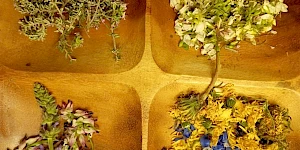
The MACBA Kitchen is a working group situated against the backdrop of ecosocial crisis. Participants in the group aim to highlight the importance of intuitively imagining an ecofeminist kitchen, and take a particular interest in the wisdom of individuals, projects and experiences that work with dislocated knowledge in relation to food sovereignty.
The Kitchen: Workshop by Marina Monsonís
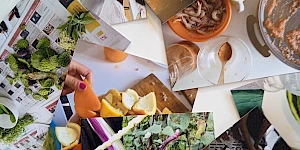
The Kitchen is a meeting place open to the participation of all, especially people and organizations that want to share their knowledge and experiences around the kitchen.
Multicultural Youth Center
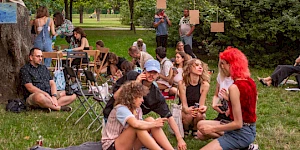
The Museum of Modern Art in Warsaw, together with the confederation of museums L'Internationale, is establishing a Multicultural Youth Center. This is a unique space for 16-24 year olds to explore and develop their creativity, make new friends and hang out in a friendly and supportive environment.
Where are the Oases?
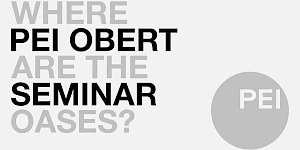
PEI OBERT seminar
with Kader Attia, Elvira Dyangani Ose, Max Jorge Hinderer Cruz, Emily Jacir, Achille Mbembe, Sarah Nuttall and Françoise Vergès
An oasis is the potential for life in an adverse environment.
Mobile Garden. A Place to Meet
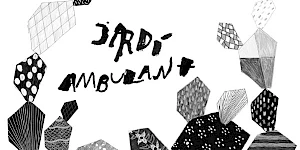
An open space, a social space. How could the Museum be more open to the needs of the neighbourhood?
School of Commoning Practices
This exchange programme gathers different schools organized by volunteers and migrant communities in Athens (Open School for Migrants) and Madrid (School of Rights, Escuela de Español and Situated mediation School) in order to share their knowledge, exchange strategies and reflect on the experience of working together with migrant communities.
Team of Teams
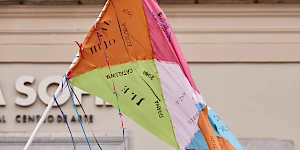
This project researches citizen participation as a fundamental pillar in the creation of community.
Sustainable Art Production
The Studies Center of Museo Reina Sofía will publish an open call for 4 residencies of artistic practice for projects that address the emergencies and challenges derived from the climate crisis such as food sovereignty, architecture and sustainability, communal practices, diasporas and exiles or ecological and political sustainability, among others.
SUPERHOST | Club Antena. Intimate listening and dancing experience
with Nele Möller, Farida Amadou, Le Réalism, Céline Gillain, Roberta Miss, Elena Colombi
CLUB ANTENA is an intimate listening and dancing session with a lecture, concert, performance, catering and DJ sets, exploring what it means to listen with our bodies.
Red, Green, Black and White
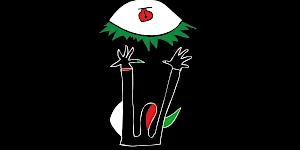
A performative inquiry by Institute of Radical Imagination and MSU Zagreb
Tongue and Throat Memories
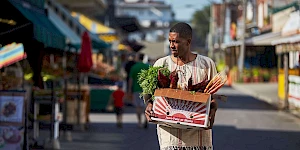
On hospitality and conviviality through food
Knowledges and convenings
Cooking Sessions
Related contributions
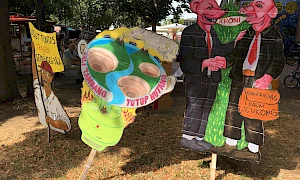
Lumbung practices to resist and collaborate through art
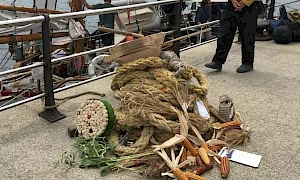
Some Guiding Terms for Lumbung Press: Defining “publishing”
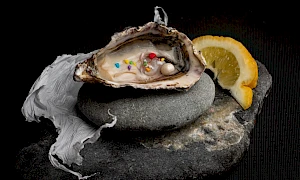
Discomfort at Dinner: The role of food work in challenging empire
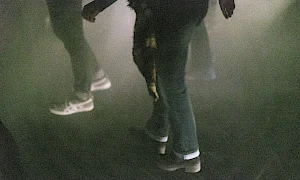
Mix tape: Let's Funk Up All Genders!
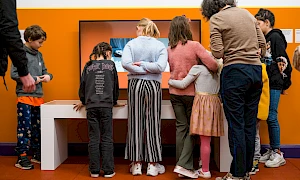
Towards Collective Learning, or, Decompartmentalizing Education
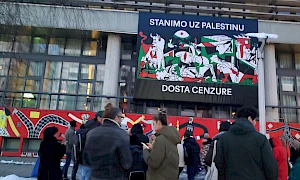
The Silence Has Been Unfolding For Too Long
